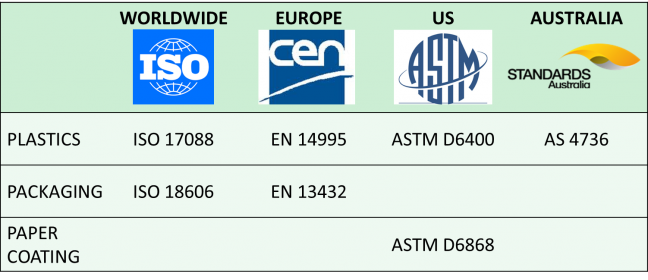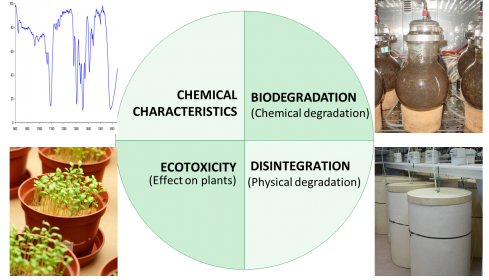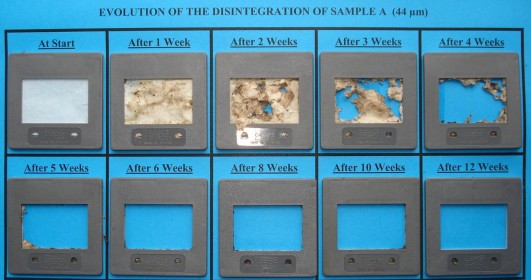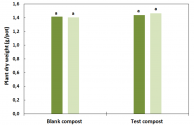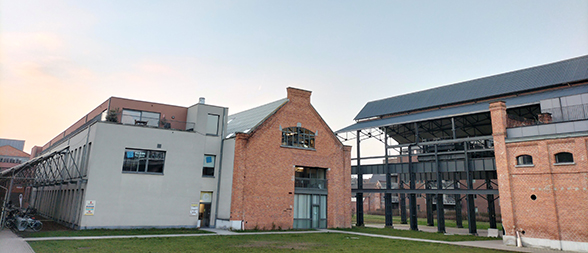After many years of development and intensive discussions in normalization committees, requirements for industrial compostability have become well established and have been firmly fixed in several norms.
In all of the above norms, the same 4 essential requirements are specified:
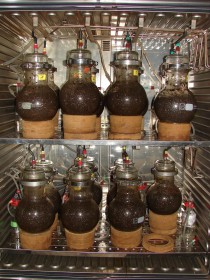 Biodegradation shows quantitatively the inherent characteristic of the material to be consumed by microorganisms and protects the environment by showing that the material will not accumulate in nature. Biodegradability is therefore linked to the chemical composition of a material and represents the % of solid organic C converted to gaseous C under the form of CO2.
Biodegradation shows quantitatively the inherent characteristic of the material to be consumed by microorganisms and protects the environment by showing that the material will not accumulate in nature. Biodegradability is therefore linked to the chemical composition of a material and represents the % of solid organic C converted to gaseous C under the form of CO2.
Biodegradability testing can be performed under ‘certification’ or ‘screening’ conditions. Certification conditions are required in case results will be used for certification and/or making public claims. Screening conditions are suggested in case of early research and when results will only be used internally.
Testing is performed conform ISO 14855, ASTM D 5338 and/or EN 14046 (in compost), ISO 17556, ISO 11266 and/or ASTM D5988 (in soil), ISO 14851, ISO 9408, EN 29408, ASTM D 5271, OECD 301C, OECD 301F, OECD 302C and/or OECD 302F (in fresh water) and ISO 14851 and/or ASTM D 6691 (in marine water). Multiple sample discounts are offered in case several samples need to be tested in parallel.
Disintegration measures whether the material breaks down and falls apart, thereby protecting the compost plant operator. In other words, the disintegration of a material is linked to its physical form and is therefore strongly affected by its thickness, grammage and/or density. For certification purposes, a precise mass balance is prepared and the exact % of disintegration calculated after sieving and hand-picking of the remaining material at the end of the test.
Testing is performed conform ISO 16929 and/or EN 14045.
As mentioned above, materials and products are certified until a certain thickness only. Therefore, in some cases, it can be better to test several thicknesses first after which the maximum thickness with the highest chance on success can be selected for the ultimate disintegration test for certification. Similarly, also different formulations can be screened first.
Ecotoxicity testing determines whether the material residuals, which are left behind after composting, show any inhibition on plant growth or the survival of soil fauna. Plant toxicity testing is a part of all norms on industrial compostability and prescribes the use of 2 plant species. Earthworm toxicity testing however is only required for AS 4736 certification in Australia.
Ecotoxicity testing can be performed on materials, intermediates, final products, inks, adhesives, varnishes, masterbatches, additives… Plant toxicity testing is performed conform OECD 208 and EN 13432, earthworm toxicity testing is performed conform ASTM E 1676, OECD 207, ISO 11268 and/or AS 4736.
Finally, heavy metals need to be quantified to assure that the material will have no negative effect on the quality of the end product (compost). Each norm has his own set of heavy metal limits, with EN 13432 and AS 4736 as the most stringent ones.
OWS is recognized by all of the below mentioned certification bureaus offering certification for industrially compostable materials and products. OWS can assist in obtaining the necessary data for and provide guidance in preparing the dossier for certification.
- Europe: TÜV AUSTRIA Belgium (OK Compost), DIN CERTCO (DIN-Geprüft) & European Bioplastics (seedling)
- USA: BPI (compostable)
- Japan: JBPA (GreenPla)
- Australia: ABA (seedling)
- And several other (national/regional) systems in Italy, Korea, Canada, Catalunya, Finland…
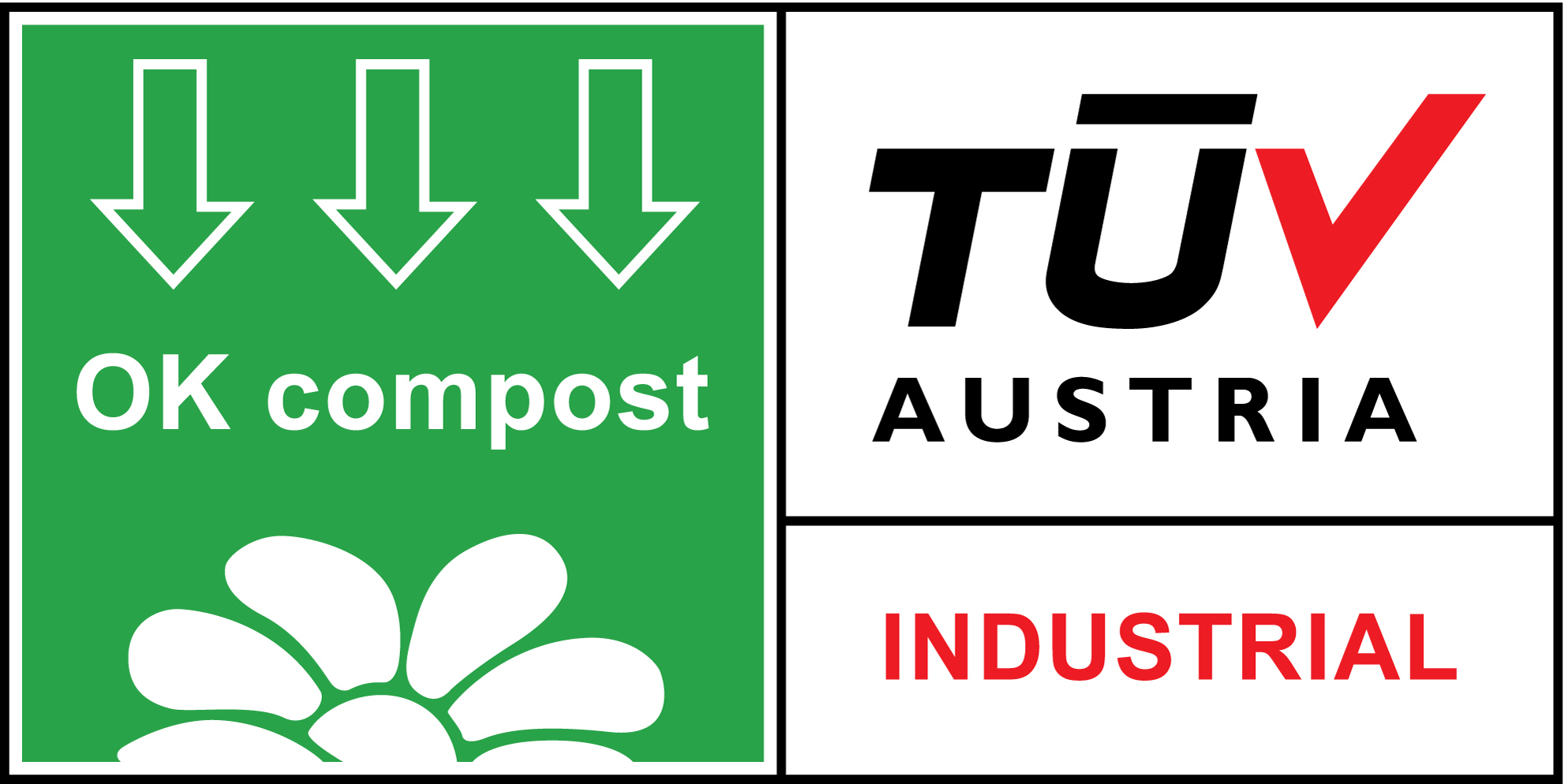
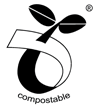
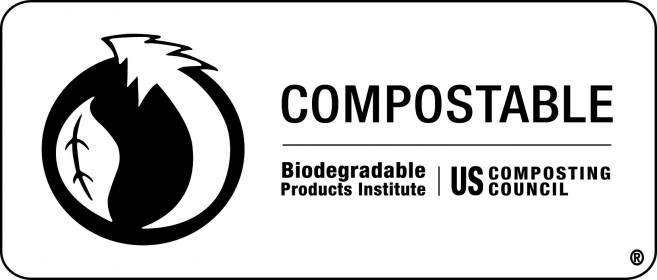

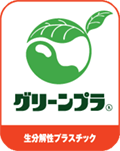


![]()
